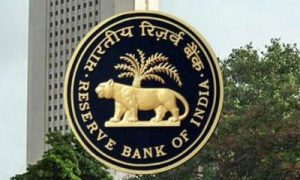BENGALURU/PUNE: The highly transmissible BF.7 Omicron variant of Covid-19 was highly unlikely to trigger another “wave” in the country, experts said, suggesting India should redefine a “surge or wave” to avoid panic in case localised or sporadic rise in caseloads is detected.
“The variant is not likely to pose serious risk to Indian population. The worst-case scenario is that the variant will cause mild upper respiratory symptoms for one or two days,” said Dr V Ravi, virologist and head of research and development at Tata Medical and Diagnostics, Bengaluru.
96501576
Ravi said the new variant is likely to behave like the known novel coronavirus. “In China, the population has been neither exposed to the variant nor have they been vaccinated. In those people, any Omicron sub-lineage will behave like the parent SARS-CoV-2 virus.”
The surge in China has prompted India to adopt preventive measures, including ramping up tests and booster shots, random screening of international flyers, and telling people to follow Covid-appropriate behaviour.
Experts said the virus has mutated to a much milder form, and a large number of Indians have acquired hybrid immunity following exposure or vaccination. Experts also said tracking hospitalisations and deaths from the virus would give a more accurate picture than monitoring the number of cases.
According to senior epidemiologist Dr Raman Gangakhedkar: “It is difficult to predict which local outbreak is likely to assume proportions of a wave. It largely depends on vulnerability at the population level. But monitoring hospitalisation and deaths appears to be a better alternative than assessing daily cases and test positivity rates.”
96494478
The term “pandemic wave” is not properly defined. The “wave” is just a graphical representation showing a rise in cases, a peak and then a dip. It is designed to give a simple picture and the number of variables is just too many to have a clear definition. Revised ICMR guidelines state only the symptomatic will be tested and that may cause caseloads to rise as people with fever or a cough are more likely to test positive. Testing only within the symptomatic pool will then show more Covid cases, but that shouldn’t mean Covid is surging everywhere, experts said.
Then there’s variable testing, including home tests, which makes identifying the real burden of mild illness almost an impossibility as results often go unreported. In such a scenario, where testing data can present a skewed picture, the most reliable predictor of a surge is data on hospitalisations and deaths, experts said.
Karnataka health minister K Sudhakar’s go-to mantra is “prepare but not panic” as “India is relatively safer” because of “100% coverage of two doses (of vaccine)”, and “most of us are already exposed to Omicron, its sub-variants and sub-lineages and as a result, many Indians have developed what we call hybrid immunity”.
“Moreover, the BF.7 variant has been around in India since September-end when the first case was reported in Gujarat. Three months since, we haven’t seen any rise in hospitalisation,” said Sudhakar.



































